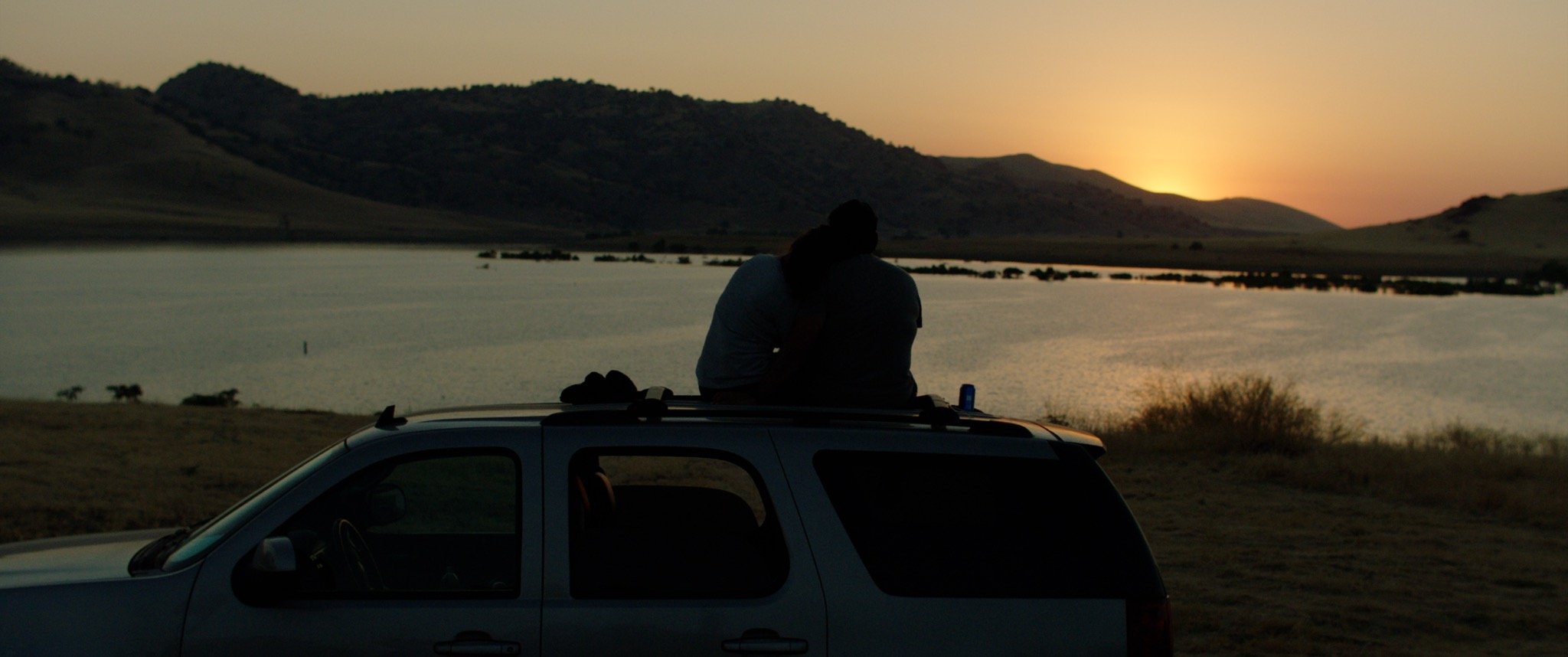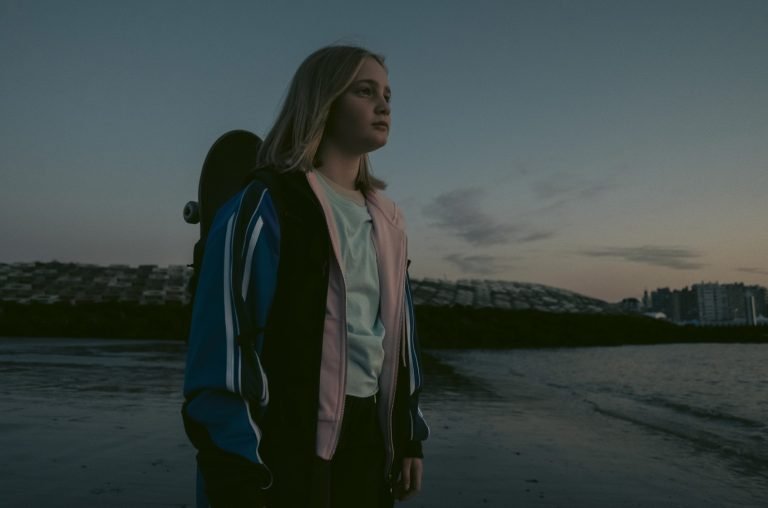Right at the start of the film, our protagonist and war veteran, Giovanni Scuderi, is told that it is not his responsibility to carry around the bullshit of the world. But Scuderi must learn the true essence of these words in his own way, and what better than a road trip to stumble upon an epiphany about life, death, and love? A Place in the Field, a debut-directorial venture by actress Nikki Mejia, is another addition to the long list of road trip films that seeks to explore the journey – literal and metaphorical – of a protagonist who is existentially burdened. If you have watched enough road trip films, you know where this film is headed, but you’ll still want to watch it for the journey it aims to trace.
The story is quite simple, despite the constant jumping back and forth throughout the narrative. Scuderi (Don Dipetta), a war veteran and a carpenter now who prefers the isolation of the countryside, has received the ashes of his (best) friend in the mail. It has come with a heavily page-marked book, The Road is Waiting, some cash, and a letter carrying the wish to be taken along on the much-promised road trip. What follows is a cross-country road trip with another of his friend and fellow veteran from his old platoon. The outline of this narrative is eerily similar to another road trip film, Off the Rails (2021), where a bunch of college girlfriends takes a road trip with the ashes of their old friend and her teenage daughter to arrive at crucial self-discoveries in the process. A romantic subplot, desert hipsters, horse therapy, and coyote-seeking later, Scuderi arrives at an epiphany that we had all been anticipating right from the start. Is it remarkable? I think the answer lies in the colour turquoise, traditionally meaning tranquillity, clarity, and compassion, which interestingly peppers the screenplay and becomes too profound in its usage to fathom its significance from time to time.
Related to A Place in the Field – 20 Underrated Road Movies You Need to See
Every frame in this film is beautiful in its own way. Right at the start of the film, we are presented with a sunset against the silhouette of the remains of a building – a gorgeous shot. I half wanted to pause the film, from time to time, to be able to soak in the lavish views along this road trip. The background score is almost meditative, ideally complementing these landscapes. I am equally impressed by the color palette and the color grades in this film. While the entire movie basks in mellow sunlight, like a warm memory, the haunting memories of a war-infested front have been differentiated in a colder, much greyer palette, and a few scenes from the dawn, dusk, and night times are dipped in myriad shades of blue. I was, I daresay, reminded of one of my favorite Kiarostami films, The Taste of Cherry (1997), from time to time. Kudos to the cinematographer, Kadri Koop, for bringing alive the desert for the audience.
The character of Scuderi is our sole area of concern in this narrative. When he howls into the sunset at the start of the film, my expectations of a well-written, complex character sketch rose a notch higher. However, the writing fails to do him justice. He is mostly, grudgingly, lonely, and he seems to be burdened with his memories. The road trip challenges this. He is forced to associate with people on the way, make a speech, and take detours. Dipetta is a good actor, but he fails to stand out. The role requires an emotional depth that seems missing from his face, and it could not be, unfortunately, be made up for by the overlapping voices and images during his volatile emotional moments. Every other character comes, says something grave, and leaves, producing little to no impact in this one-man drama.
The writing is too overwhelming to keep the audience’s attention in place. The jokes, if any, don’t land. It is also quite difficult to believe that everyday conversations on a road trip are all replaced by deep and meaningful observations. Simply put, I dearly missed the fun quotient of a road trip film. True, we see snatches of banter in a conversation between Jack and his companion. But we are also forced to participate in a documentary-like portrayal of a Spanish myth – the result is, mostly, confusing.
Also, Read – THE ROAD MOVIE [2018]: ANARCHY ON THE ROADS OF HELL
Mejia seeks to explore post-traumatic stress disorder (PTSD) in this film, but the camera caricatures overshadow the real conversation around mental health. The effort is genuine, but it needed better attention to become a fruitful exercise in filmmaking. You can soak in the desert charms and contemplate life all you like during its 103 minutes-long runtime, but it doesn’t promise to impact you.
A Place in The Field had its world premiere at the Santa Barbara Film Festival 2022.
Trailer
A Place in the Field (2022) Links – IMDb
A Place in the Field (2022) Cast – Jack McGee, Marlene Forte, Mishel Prada





![Asuran [2019] Review : Rise, Asuran, Rise!](https://79468c92.delivery.rocketcdn.me/wp-content/uploads/2019/10/Asuran-highonfilms2-768x329.jpg)
![Bruised [2021] Netflix Review: Sports Drama neither works as sports film nor a drama](https://79468c92.delivery.rocketcdn.me/wp-content/uploads/2021/11/Bruised-2021-768x432.jpg)

![Baby Driver [2017]: Maddeningly Infectious](https://79468c92.delivery.rocketcdn.me/wp-content/uploads/2017/07/no_support_bg-768x432.jpg)

![I Carry You With Me [2021] Review: A familiar queer love story that cleverly merges into a docu-fictional narrative](https://79468c92.delivery.rocketcdn.me/wp-content/uploads/2021/06/I-Carry-You-With-Me_AtHome_1920x1080-768x432.jpg)